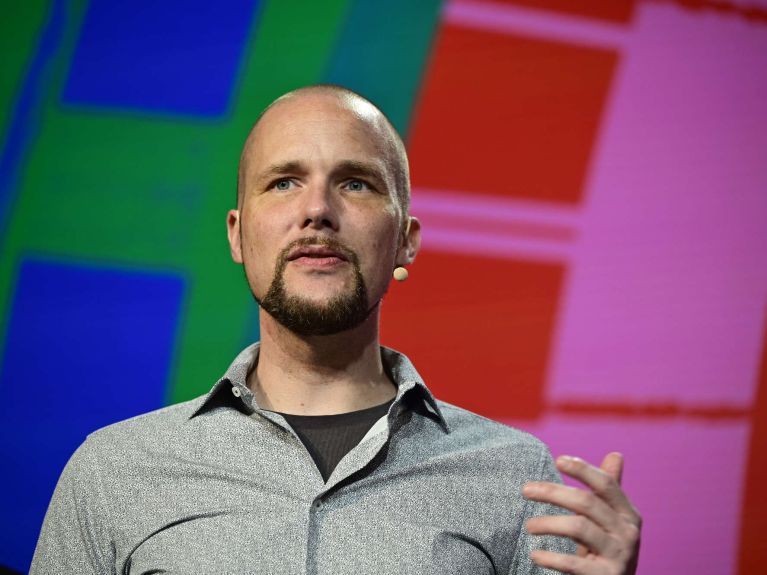How Jonas Andrulis aims to strengthen Germany as an AI base
The founder of Aleph Alpha is looking to develop advanced AI models made in Germany that can take on the global competition.

“Let’s change the world!” – this is a phrase Jonas Andrulis likes to use in the frequent keynote speeches he now gives. The 41-year-old industrial engineer is the founder of the start-up Aleph Alpha, a company that is regarded as a leading light in the field of generative artificial intelligence. It was probably during the time he spent in Silicon Valley himself that he developed the kind of world-changing aspirations that are typical of the US West Coast. Andrulis worked there for Apple for a number of years before returning to Germany in 2019 and founding Aleph Alpha.
From Silicon Valley to Heidelberg
A more obvious step would have been to move to a city like Berlin or Munich, where there is already a well-established start-up scene. Instead, Andrulis opted for Heidelberg, the famous university city in the south of Germany with a population of 160,000. He himself did his university studies nearby, at the renowned Karlsruhe Institute of Technology (KIT). Heidelberg’s proximity to KIT and other top-level universities involved in the Cyber Valley research consortium in the Stuttgart region make it the ideal location for Andrulis. And it’s a great place to live – another plus point when it comes to recruiting the kind of AI talent that Aleph Alpha depends on, too.
I believe we have a chance that’s worth fighting for.
Germany’s answer to ChatGPT
The core idea of Aleph Alpha is to develop large language models which deliver results that are comprehensible, i.e. transparent - unlike competing products coming out the USA and China. For this reason, Aleph Alpha keeps its code publicly accessible. Unlike ChatGPT, Aleph Alpha’s language model Luminous, is not aimed at end users but at companies and administrations.
Aleph Alpha has just raised another 500 million euros to further advance the development of Luminous. The fact that his company is now repeatedly cited as the German answer to OpenAI has given Andrulis “the odd sleepless night”, as he admits in an interview with the FAZ. He says: “I believe we have a chance that’s worth fighting for.”


